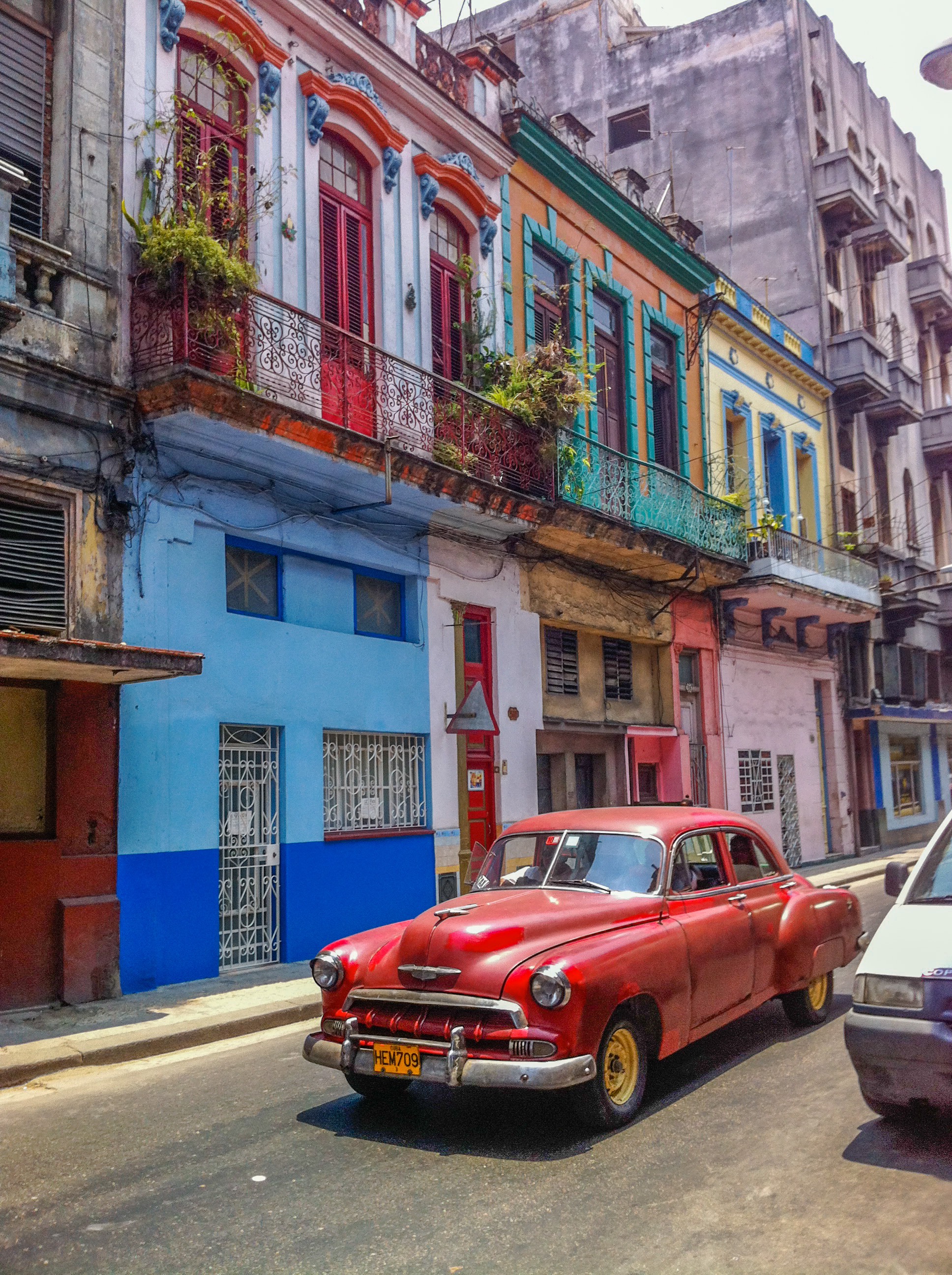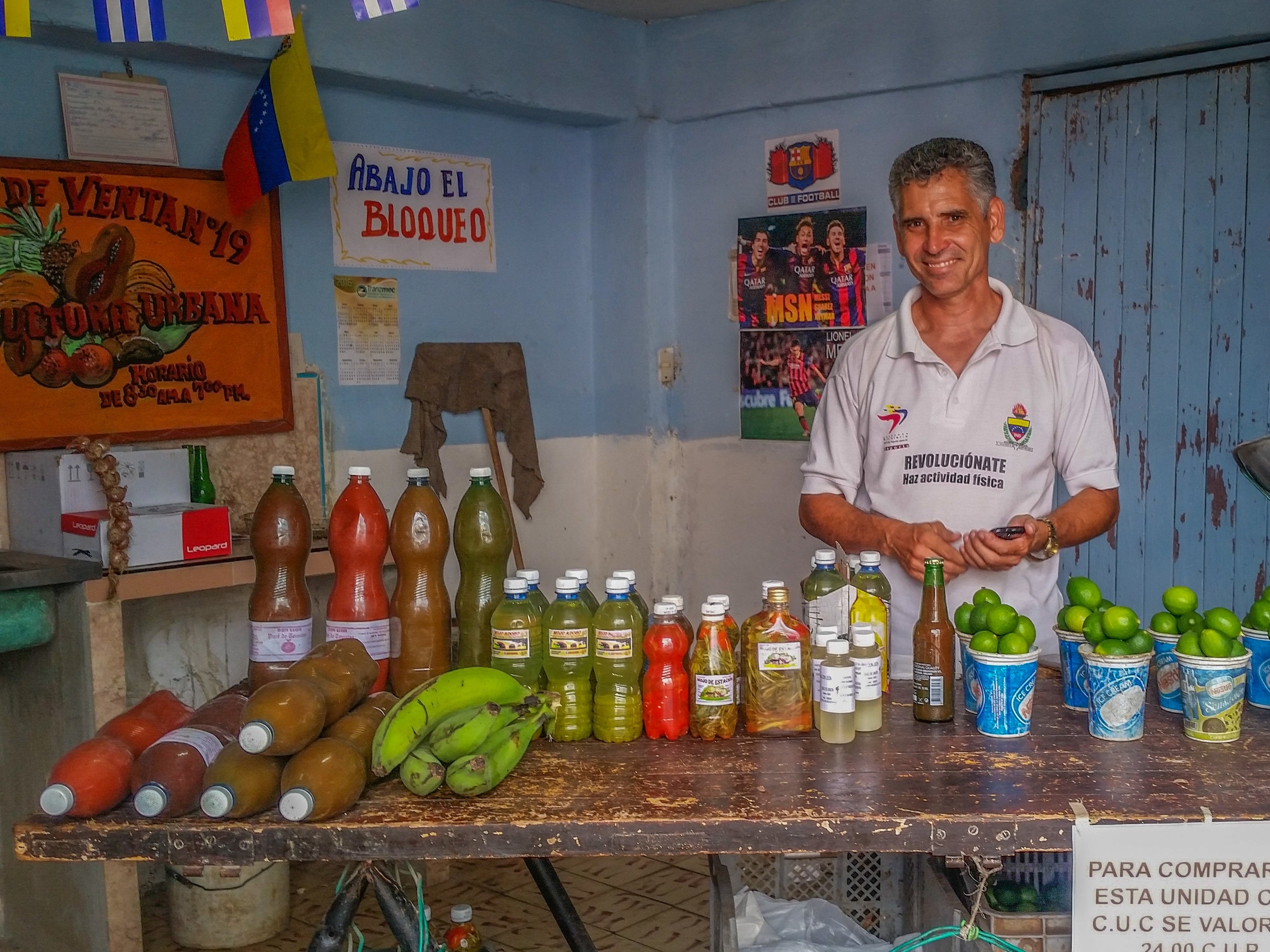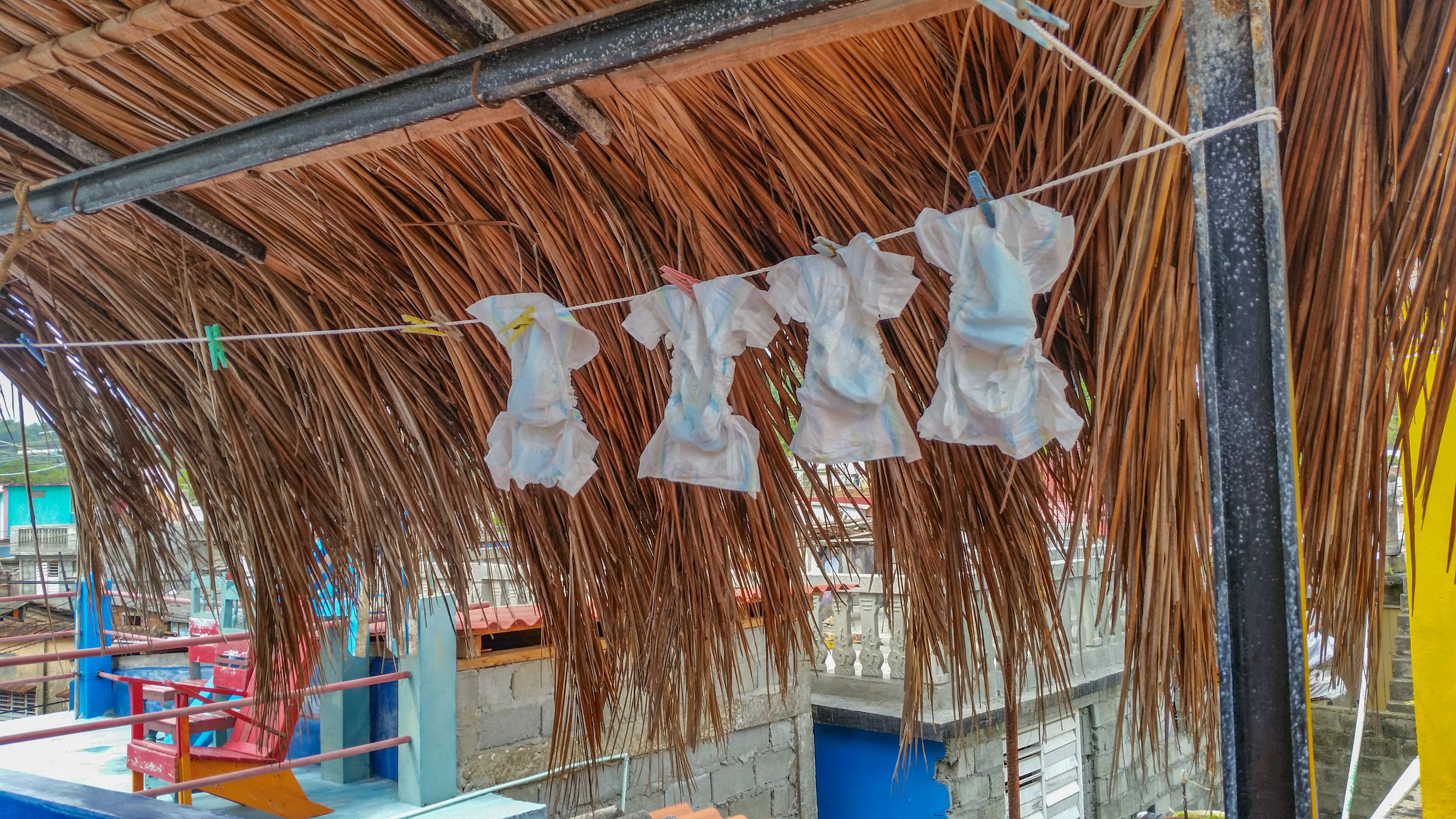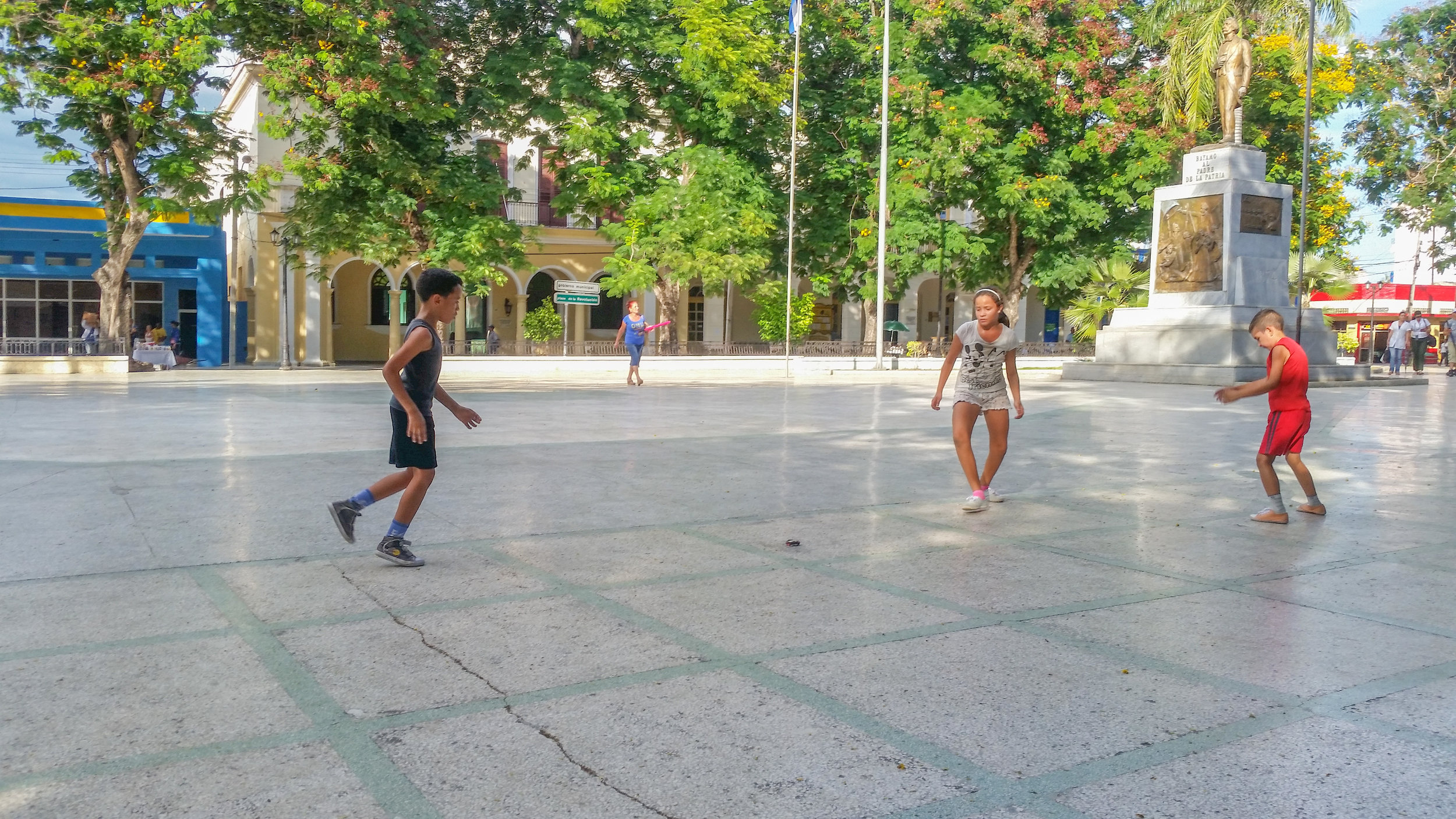How to Pack for Cuba
HOW TO PACK FOR CUBA
Packing for Cuba is a bit different than for other countries. You’ll need to back both for the expected, and the unexpected, bringing everything you’ll need during the trip while also not over-packing. Read on for tips on what to pack during your next trip to Cuba.
So, Trump's new travel policy rollbacks set you back but you've been dreaming about visiting Cuba for years and you finally have your flight booked. You have your sunscreen, big floppy hat, favorite swim suit, and your camera so your Instagram followers can see you with Che Guevara propaganda and 1950s Chevys. Cuba is not your typical Caribbean island and though it's only 90 miles from Florida, it couldn't be further away in terms of modern day conveniences. Knowing how to pack for Cuba makes a huge difference in how much you'll enjoy the trip. Properly packing for a trip to Cuba - particularly an extended trip - requires more planning and thoughtfulness than your typical island escape.
Travel Visa for Cuba
Also remember that all visitors to Cuba require a travel visa. The visa is typically good for 30 days and can be renewed several times, depending on your country of origin. You can pre-purchase your Cuban travel visa online - just make sure you buy the correct visa. If you are traveling from a US airport, you must purchase the Pink Tourist Card. If you’re traveling to Cuba from any other country, you will purchase a Green Tourist Card. You can also pay your airline for the visa at the airport (and it’s a few dollars cheaper), but this option allows you to pay with a credit card up to 180 days in advance. This option also ships the visa within a few days and offers real-time tracking so you have a bit more security.
Beaching it up in Trinidad
Rolling through Old Havana
Che Guevara looking over Santa Clara
Essential Items to Pack for Cuba
Cuba is a hot, sunny country where beach bumming is a top tourist activity so packing sunscreen should be a no-brainer. I typically bring my own favorite sunscreen but there's been times that I didn't have a chance to pick it up before a trip or I want to bring more than my carry-on luggage will allow. I avoid checking bags at all costs so in these situations, I just hit up a pharmacy, supermarket, or even the airport shops when I land and purchase sunscreen there. This is not the case in Cuba. Everyday items and even the most basic toiletries are difficult to impossible to come by. It's not a matter of only finding Banana Boat waterproof SPF 70 sunblock when you really prefer Neutragena SPF 55. It's a matter of not finding ANY sunblock ANYWHERE.
I made this mistake on my first trip to Cuba in 2012. I didn't want to check my bag and planned to buy a large bottle to use for the two weeks I would be there in mid-May, a typically hot and sunny month. I couldn't have been more wrong. I visited a dozen shops in Havana and even my host and local friends were unable to find me sunscreen. I hoped to borrow some from other pasty travelers I met but they were all in the same situation. A week into my trip, I finally met a couple about to head back to California (the only Americans I would meet during the entire trip) who took pity on my tomato-hued face and gave me the rest of their travel-size sunscreen. It's now 2018 and some toiletries can be easier to find in some stores in some areas, some of the time. There are no guarantees in Cuba. The same goes for other "basic" toiletries. As such, bring everything you expect to need during your trip. Does your camera require batteries? Plan on bringing an extra set with you since you may not find them on the island. Medication? You better believe you should bring it, along with any over-the-counter pain relievers you may need for a head or stomach ache.
I tend toward breathable products that are multi-purpose (and I’m a HUGE fan of leggings and long-sleeve, sun protective tops). You can find a list and description of my favorite products in my Travel Store or within my Amazon travel shop. I’m also a big fan of The North Face products and they’re offering 25% off until April 19th with code “STAYCOZY.”
Not-so-basic "basic" items to pack
Items with an asterisk** also include a picture and link below to my favorite brand/model. Find even more of my favorite travel products here. Also, I never leave home without travel insurance and I’ve found it especially useful in Cuba. I always buy World Nomads travel insurance and you can read here why its important.
Sunscreen**
SPF shirts**
Lunchbox**
Water bottle**
Water filter **
Tampons/pads/Diva cup**
Electrolyte tablets (Gatorade is NOT available)**
Sandals
Toothpaste/toothbrush
Soap, shampoo, conditioner
Lotion
Deodorant
Nail file / clippers
Hair brush / comb
Chapstick / make-up
Contact solution & contact case
Hand sanitizer
Batteries/chargers
Sunglasses
Bandages and Neosporin
Advil, Aspirin, Ibuprofen, etc.
Bug spray
Cayo Jutia beach in Vinales
A vendor in Sancti Spiritu sells homemade sauces, pickles, and purees out of old rum and water bottles
Everyday Items in Cuba
Everyday items like underwear, batteries, and feminine hygiene products can be difficult to find in Cuba so try to save some space in luggage for some donations to leave behind. Cubans re-use and recycle everything so sewing kits are very much appreciated, as are reusable tote bags. Many restaurants fulfill take-out orders using plastic containers brought in by customers, and bakeries sell cakes without boxes. Zip-lock bags and Tupperware go a long way on the island. As I walked with a friend in Bayamo, Cuba, he picked up a small, discarded bottle of hair dye from the gutter. It smelled of chemicals and it didn’t have a cap. “This would make the perfect water bottle so I don’t have to stop into restaurants and ask for water while I’m driving my bike taxi.” It was, in fact, a terrible water bottle and likely an unsafe container to be drinking out of, but it was all he had. Fortunately, I had a sturdy steel water bottle to leave him, and easily purchased another when I returned to New York City. Cubans don’t have it so easy.
Virtually everyone who has joined my group trips to Cuba has specifically packed clothing to wear during the trip that they planned to leave behind. Some checked a bag so they could bring huge bottles of shampoo and body wash that they used during the trip and then left behind. A young teacher from the Bronx brought an additional full-size suitcase stuffed with everything from clothing and toiletries to an old blender and mini food processor that he no longer used.
I can't fully recommend AirBnB in Cuba just yet (there's some great hosts but I've heard too many horror stories to recommend it whole-hardheartedly yet). If you must use AirBnB, dig my new-user code to save $40 on your first stay or contact me to stay with trusted casa owners I've worked with for several years. Either way, I recommend to Read This Before Booking an AirBnB in Cuba, which includes links to some of my favorite listings around the islands. Donations can easily be left with your host, but families who host tourists tend to be better off and already receive a lot more donations than other Cubans so I tend to leave my donations with people I meet on the street. When traveling between cities in shared colectivo cars, I ask the driver to pull over as we pass through small towns so I can give bags of clothes and Tupperware to families who clearly are of modest means. This may not work in tour buses, but colectivo and taxi drivers are happy to comply since they appreciate tourists supporting their paisanos (countrymen/brothers).
The embargo that the United States imposed on Cuba over 50 years ago continues to hurt the Cuban people. Other countries have avoided trading and negotiating with Cuba out of fear of retaliation from the United States. As a result, the vast majority of Cubans have difficulty obtaining everyday items. Cuba suffered through the Special Period, an extended period of economic crisis that began in 1989 after the collapse of the Soviet Union, Cuba's primary trading partner and source of food. Average body weight dropped due to lack of food and "everyday items" became even more difficult to come by.
Despite our governments’ problems, the Cuban people are kind, generous, and loving toward Americans. They welcome Americans and go out of their way to make them feel comfortable, even the ones who rudely take selfies highlighting their poverty or complain about not being able to find vegan Cuban food. The least we can do is pack a pair of shoes we never wear anyway so that a boy has proper shoes for school or his father doesn't have to wear flip flops to the factory or the field.
How you transport a Mother's Day cake in Las Tunas without a box
How you pack a picnic lunch in Holguin without Tupperware
How you fish in Granma without lures (Barbie doll hair)
If you're OD like me…
I started out bringing the "usual" helpful items like sewing kits, toiletries, clothing, and reusable plastic containers, but as I traveled more through Cuba, I saw how less-common items were lacking and how even small, seemingly insignificant items turned out to be very meaningful and helpful. Several of my Cuban friends wore shoes that a tourist had left behind. The shoes either didn't fit properly or were missing insoles so I started bringing shoe inserts to make the shoes more comfortable. Instead of recycling a sturdy cardboard shoe box, I decided to pack it with my belongings and bring it to Cuba. When I came home after dancing in Havana one night, a Cuban friend informed me that she had turned the box into a storage unit for her children’s important documents.
Unless you're in a fancy hotel or one of the new, high-end "casa particulares", (B&B home stays), nice pillows do not exist in Cuba. I planned to get rid of one of my old pillows since it had the embarrassing sweat/stain marks that occur over time. I very reluctantly brought it to a friend in Havana and immediately regretted not purchasing her a new pillow. I hesitantly handed over my leftovers, which she embraced and kissed, beaming from ear to ear, saying that she had never seen such a beautiful pillow in her life.
Diapers drying for re-use in Baracoa, Guantanamo
Old beer bottles make great glasses in Bayamo
Kids playing kick-the-can in Bayamo
Bringing Donations to Cuba
Don't go out of your way to take old, crappy junk that you don't want to Cuba and think you're saving the world, but recognize how much we take our possessions for granted and think about the new life that someone could give the items collecting dust in your closet or basement. One of the most practical donations I've seen was a folded-up metal push cart a woman on my flight had tied up and wrapped in plastic. Genius! Guess what's on my list for my next trip!
After I flew to Cuba with severe food poisoning (thanks, Mexico!) in order to arrive the same day as President Obama in 2016, a friend let me sleep in her and her husband's bed. I had a terrible back ache after only an hour, as the mattress, which felt like it was stuffed with old dish rags and knives, dug into my back while offering zero support. She and her husband somehow managed to sleep on the bed every single night as her two teenage children sleep on the floor next to them. This is the norm in Cuba. Despite renting out the nicer room in the home to tourists and working odd jobs, the family still can't make ends meet - imagine how much worse off families are in rural areas where tourist dollars don't flow in at all. The following year, I brought a heavy-duty, inflatable Queen-size mattress that the family now sleeps on.
What Donations to Bring to Cuba
Important to note is that if you bring a large amount of donations to Cuba (such as two dozen USBs or a duffle bag full of tennis balls, which I saw a traveler be detained for), you may be detained, your passports requested, and you may be required to show your full itinerary and documentation for where you plan to donate the items. Cuba does not want tourists bringing in items to sell and travelers bringing in large amounts of a single item and you may be confused with this if you bring in “too many” donations (such as 10 USBs or 20 packs of pencils). Cuba has strict and bizarre rules on what can be brought in through customs and limits the quantities of many items. See the full list of rules (in Spanish) here.
Some donations will be confiscated (like the $10 hot plate that airport security confiscated from me, after I spent 3 hours waiting in line to be searched). Here are a some suggestions for highly-useful items to donate that won’t take up a lot of room in your luggage and are unlikely to be confiscated by airport security.
Donations to Pack:
Clothing! Pack clothing to wear that you'll leave behind
Any toiletries (leave behind whatever is leftover)
Old cell phones and charges (yes, even flip phones!)
Batteries (reusable or single-use)
Sturdy plastic food containers
Zip-lock storage bags
USB drives & Micro SD cards
Sewing kits
Earphones
Multi-vitamins/pain killers
Neosporin, Bengay, Tiger balm, other ointments
School supplies (pens, highlighters, notebooks, crayons)
Wrist watches
Spices (Cuban food has limited spices/seasonings so many people appreciate trying new flavors they can't find on the island)
Just about anything you bring will be appreciated and put to good use.
Interested in group tours to Cuba? Join me for an unforgettable group trip to Cuba in 2020!
Travel Insurance for Cuba
Travel insurance is SO important while traveling and covers everything from unexpected injuries, trip cancellations, flight changes, lost baggage, or having to cut your trip short due to an emergency back home. I’ve bought World Nomads travel insurance for EVERY trip I’ve taken in the past four years and highly recommend them. For more info on why it’s important, check out my article on Why to Buy Travel Insurance.
Related Articles about Cuba
See my previous blog posts to get a feel for the day-to-day life that few tourists encounter, what to pack, what to expect, and what to know.
The ULTIMATE Cuba Travel Guide: Everything you need to know
What to Know Before Booking an AirBnB in Cuba
Tips for Solo Female Travelers in Cuba
Cuba’s Local Food Scene Isn’t What You’d Expect
Is it Still Legal to Visit Cuba?
Cuba's Zero-Waste Recycling Like You've Never Seen it Before
Spaghetti with Mustard: Not What You Expected from Cuban Food
Pin for later!
Packing essentials for your trip to Cuba
Packing tips for your next trip to Cuba














